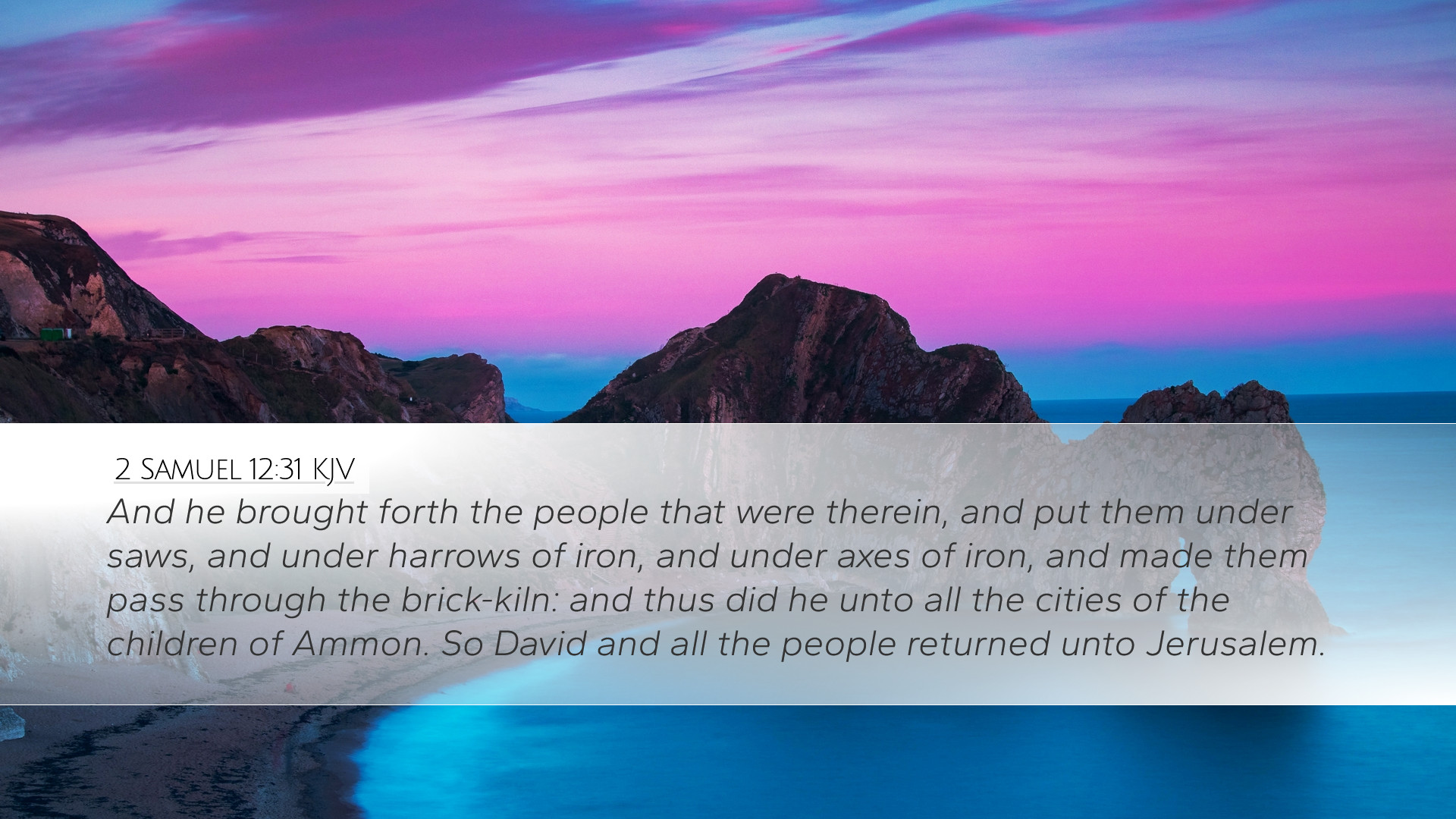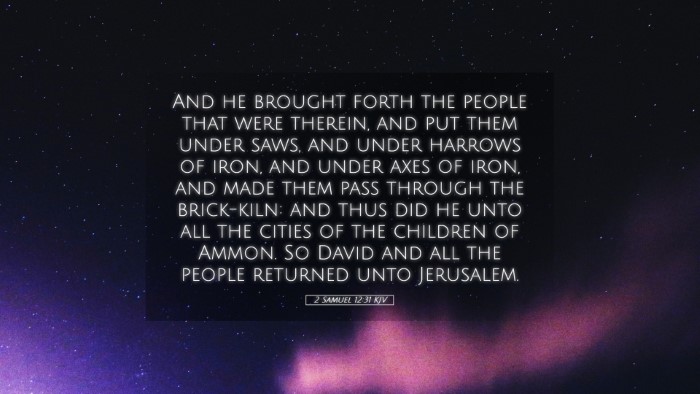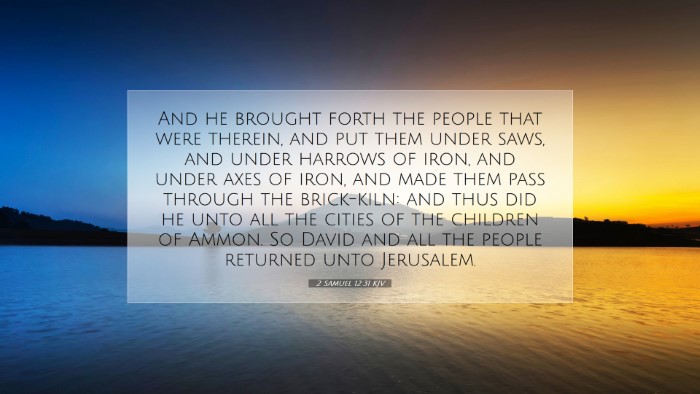Commentary on 2 Samuel 12:31
2 Samuel 12:31 states:
"And he brought out the people that were therein, and put them under saws, and under harrows of iron, and made them pass through the brick-kiln: and thus did he unto all the cities of the children of Ammon. But David and all the people returned unto the city." (KJV)
This verse recounts King David's military campaign against the Ammonites, showcasing the harsh and violent methods employed in warfare during that period. It reflects the historical and cultural context of ancient Near Eastern warfare.
Contextual Background
After David's sin with Bathsheba and the subsequent judgment pronounced by Nathan the prophet in 2 Samuel 12, David's actions demonstrate a mix of divine judgment and military expediency. The surrounding verses discuss the siege of Rabbah, the capital of the Ammonites.
Moral Implications
- The consequences of sin: David faced severe consequences for his own sin, and this may have been mirrored in his ruthless treatment of the Ammonites. Matthew Henry notes that although David was forgiven, the repercussions of his sin affected his kingdom.
- The nature of power: Albert Barnes emphasizes the brutal realities of political power and warfare. This passage challenges contemporary readers to reflect on the moral implications of military actions and the leadership responsibilities borne by rulers.
Insights from Matthew Henry
Matthew Henry provides an in-depth examination of David's character as both a warrior-king and a man of God. In his commentary, he explains:
- David's military tactics: Henry describes how David showed no mercy to the Ammonites and how this served as a harsh lesson on the consequences of enmity against God's people.
- Theological implications: He reflects on the justice of God that permits such events to unfold as part of divine retribution against nations that oppose His plans.
Insights from Adam Clarke
Adam Clarke offers a historical and textual analysis of the brutality described in the text:
- The cultural context: Clarke notes the commonality of such practices in warfare at that time, suggesting that David's actions were consistent with the violent norms of ancient Near Eastern conflicts.
- Symbolism of punishment: He also interprets the use of extreme measures like saws and iron harrows as a symbolic gesture against those who dishonored Israel, reinforcing the notion of divine justice.
Albert Barnes on Warfare and Mercy
Albert Barnes tackles the juxtaposition of David's previous acts of mercy against Saul and contrasts them with his treatment of the Ammonites.
- This raises profound ethical questions about mercy and judgment in the life of a leader. Barnes invites readers to ponder the reasons behind such militaristic fervor.
- He also discusses the broader implications of warfare on national and spiritual integrity, suggesting that leaders must balance justice with mercy.
Reflections for Pastors and Theologians
- Understanding divine judgment: This passage can serve as a sermon illustration on the seriousness of sin and God's judgment.
- Application to contemporary issues: Pastors can draw parallels between David's actions and modern-day conflict, prompting discussions on ethical warfare, justice, and mercy in leadership.
- Historical lessons: The context invites a discussion on the historical nature of warfare and the morality that should inform modern Christian action.
Conclusion
In summary, 2 Samuel 12:31 provides a sobering glimpse into the violent realities of ancient warfare and the complexities of David's character as a king. Through the lenses of Matthew Henry, Albert Barnes, and Adam Clarke, readers are encouraged to reflect on the moral complexities of leadership, warfare, and divine justice. The implications for contemporary faith and practice remain significant, reminding us of the necessity for wise and compassionate leadership.


